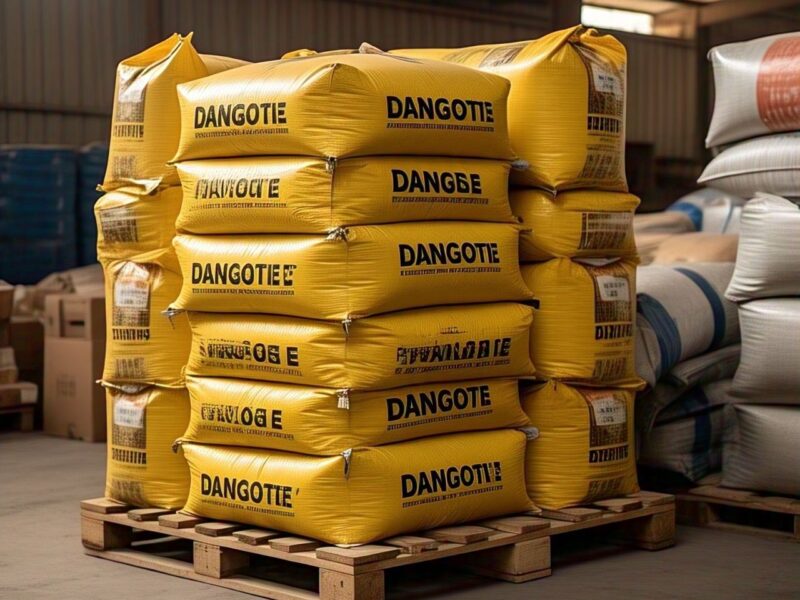Curious about how much is a bag of flour in Nigeria? As of March 2025, a 50kg bag of flour in Nigeria ranges from ₦50,000 to ₦85,000, depending on the brand, location, and market conditions. This staple ingredient, vital for bread, pastries, and countless Nigerian dishes, reflects the country’s economic pulse. We’re here to provide a comprehensive, engaging guide with precise pricing, key factors, and buying insights to help you navigate Nigeria’s bustling markets. Let’s unpack the details and see what drives these costs.
What Makes Flour Essential in Nigeria?
Flour, particularly wheat flour, is a cornerstone of Nigerian cuisine and commerce. From fluffy bread in Lagos bakeries to crispy chin-chin in Kano households, its versatility keeps it in high demand. Major brands like Dangote, Honeywell, and Golden Penny dominate the market, catering to both home cooks and industrial bakers. With Nigeria importing most of its wheat, flour prices are a barometer of global trends and local realities. We’ll explore how these dynamics shape what you pay for a bag.
Current Prices of a Bag of Flour in Nigeria
Let’s dive into the numbers. A standard 50kg bag of flour varies in cost based on brand, region, and whether it’s bought wholesale or retail. Here’s the latest breakdown as of March 2025, sourced from Nigeria’s active marketplaces.
Popular Brands and Their Costs
- Dangote Flour: A household name, a 50kg bag ranges from ₦57,300 to ₦80,000. On Jiji.ng, prices hover around ₦57,300, while Jumia Nigeria lists them up to ₦60,000. Physical stores like SLOT Systems may charge closer to ₦80,000 with added delivery fees.
- Honeywell Flour: Known for quality, it’s priced between ₦60,000 and ₦70,000.
- Golden Penny Flour: A baker’s favorite, it costs ₦60,000 to ₦85,000. Markets like Computer Village might hit the higher end, while online deals dip to ₦60,000 during promos.
- Other Brands (e.g., Crown, BUA): These range from ₦50,000 to ₦65,000, offering budget-friendly options for smaller-scale use.
Read also: How Much is a Bag of Rice in Nigeria?
Where to Buy Flour in Nigeria
Nigeria’s market offers diverse purchasing options. Online platforms like Jumia and Jiji provide convenience and doorstep delivery to cities like Abuja or rural Ogun. You can also buy from the open market. We recommend verified sellers to ensure you’re getting genuine products.
Factors Driving Flour Prices
Several forces shape the cost of a bag of flour in Nigeria. The Naira’s exchange rate is a major player—since wheat is imported, a weaker currency spikes prices. Global wheat prices fluctuate with supply chains and harvests, directly affecting local costs. Import duties and transportation expenses—from ports to markets—add layers to the price tag. Seasonal sales, like those on Jumia during festive periods, can offset these pressures with discounts.
Types of Flour Available
Beyond wheat, Nigeria’s flour market includes alternatives:
- Wheat Flour: The most common, used for bread and pastries.
- Cassava Flour: Priced at ₦40,500 to ₦55,000 for 50kg, it’s a local staple for swallows like fufu.
- Plantain Flour: Around ₦45,000 per 50kg, popular for health-conscious diets.
Each serves distinct culinary needs, influencing their market value.
Nigeria vs. Global Flour Prices
Globally, a 50kg bag of wheat flour might average $50-$70 (₦79,000-₦111,000), but Nigeria’s range of ₦50,000 to ₦85,000 reflects local production gaps and import reliance. In Kenya, a similar bag costs KSh 6,000 (₦33,000), cheaper due to regional wheat access. Nigeria’s prices align with its economic context, balancing import costs with high demand.
Tips for Getting the Best Deal
We’ve got practical strategies to save you money. Compare prices across Jumia, Jiji, and local markets—online often beats physical rates. Haggle at places like Mile 12 Market, where vendors might drop ₦5,000. Time purchases for sales—Black Friday or Eid on Jumia can cut costs significantly. Check brand authenticity via packaging or serial numbers to avoid substandard flour.
Impact of Flour Prices on Baking
Rising flour costs hit Nigeria’s bakers hard. A bag jumping from ₦55,000 to ₦70,000 in months has forced many small bakeries to raise bread prices or shut down. Home cooks also feel the pinch, adjusting recipes or opting for cheaper alternatives like cassava flour. It’s a ripple effect tied to economic shifts.
Is a Bag of Flour Worth the Cost?
For households and businesses reliant on flour, yes—it’s a kitchen essential. At ₦50,000 to ₦85,000, a 50kg bag offers bulk value, lasting weeks for frequent bakers. Its versatility justifies the investment, though price fluctuations challenge budgeting. Alternatives like cassava flour can ease the strain for non-wheat needs.
Final Insights on Flour Costs
So, how much is a bag of flour in Nigeria? From ₦50,000 for budget brands to ₦85,000 for premium ones, it’s a range shaped by imports, brands, and markets. Nigeria’s flour scene offers options for all—online ease or market hustle. With this guide, you’re set to shop smart and keep your kitchen stocked. Ready to grab a bag or hunt for a deal?



